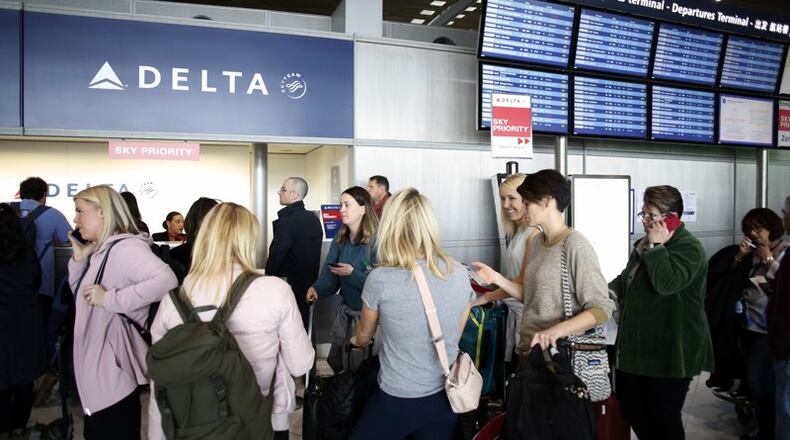“We made a lifesaving move with early action on China,” Trump said on Wednesday night. “Now we must take the same action with Europe.”
Corona Virus: Complete Coverage
The restrictions will not apply to the United Kingdom. There will be exemptions for “Americans who have undergone appropriate screenings,” legal permanent residents, immediate family of U.S. citizens or others “identified in the proclamation” signed by Trump.
While Trump said all European travel would be cut off, Homeland Security officials later clarified the new travel restrictions would apply only to most foreign nationals who have been in the “Schengen Area” at any point for 14 days prior to their scheduled arrival to the U.S. That area includes France, Italy, Germany, Greece, Austria and Belgium. The White House said the “Schengen Area” has the highest number of confirmed COVID-19 cases outside of mainland China.
“We’re still sorting through those restrictions and what they mean,” said John Rose, chief risk officer for travel agency ALTOUR, the parent company of Travel Authority in Springboro.
MORE: Coronavirus and canceled classes: A list of what local colleges are doing
Rose said the travel agency has travelers going to the restricted countries and they are working to either cancel or reschedule those trips at the customers’ request. Especially business travelers.
“We’re seeing far more people wanting to reschedule than to cancel their trips,” Rose said.
Rose said this is not a peak travel time to Europe, but the travel company has a lot of trips scheduled to Europe from the U.S. in June, July and August.
About 72.4 million passengers flew from the U.S. to Europe in the year ended last June, making it the most popular international destination, according to Transportation Department figures. A third of those passengers fly on U.S. airlines, the rest on foreign carriers.
The President didn’t mention restrictions on Americans traveling to Europe. In January, the U.S. issued a similar ban on people coming into the country from China. That policy was later extended to people who had been in Iran.
The CDC recommends travelers avoid all nonessential travel to places with level 3 travel notices due to the risk of getting coronavirus. China, Iran and most of Europe have level 3 travel notices, according to the CDC.
MORE: How to get expert answers to your coronavirus questions
ALTOUR has received a lot of questions about trips scheduled for June through August and advised customers that while the choice is ultimately up to them, based on all the information the company has gotten from government agencies as of right now, it’s not necessary to cancel trips scheduled then.
“Unless something is already restricted, like an airline is saying they’re not flying until July, you are fine to travel,” Rose said.
Rose said the travel company has not had problems getting people back home from those restricted European countries.
“This is what we do,” Rose said, “we’re not having issues getting people home.”
Airlines are scrambling to adjust to the new restrictions, with many telling customers they were still assessing options and asking for patience from those trying to contact them.
“It’s going to hurt our industry right off the bat, but we’re going to come out stronger than ever,” Rose said.
Southwest Airlines CEO Gary Kelly said the outbreak might be worse for airlines than the terror attacks of 2001. Delta Air Lines said Tuesday that travel demand has fallen so sharply in the past week that it expects a third of seats to be empty this month on flights within the U.S., which was insulated from virus fallout for a time.
United Airlines expects to lose money in the first quarter for the first time in six years. United said ticket sales in the U.S. have dropped 25% in recent days — 70% after subtracting cancellations — and it’s even worse in Asia and Europe.
EVENT CANCELLATIONS: What’s closed, canceled or postponed in area due to coronavirus concerns
This is an evolving situation and it changes quickly. For more information on the coronavirus, visit the CDC's website.
The Associated Press contributed to this story.
What is the risk of getting coronavirus on an airplane?
According to the CDC, because of how air circulates and is filtered on airplanes, most viruses and other germs do not spread easily on airplanes. Although the risk of infection on an airplane is low, travelers should try to avoid contact with sick passengers and wash their hands often with soap and water for at least 20 seconds or use hand sanitizer that contain 60%–95% alcohol.
Is it safe to go on a cruise?
The CDC recommends travelers, especially those with underlying health issues, defer all cruise ship travel at this time.
What if I recently traveled to an area affected by the coronavirus and got sick?
If you were in a country with a coronavirus outbreak and feel sick with fever, cough, or difficulty breathing, within 14 days after you left, you should call a doctor’s office or emergency room and tell them about your recent travel and your symptoms. You should also avoid contact with others, including traveling on public transportation, the CDC said.
How can I protect myself?
Clean your hands often with soap and water or a hand sanitizer that contains at least 60% alcohol. Also, avoid close contact with people who are sick, the CDC says.
About the Author

